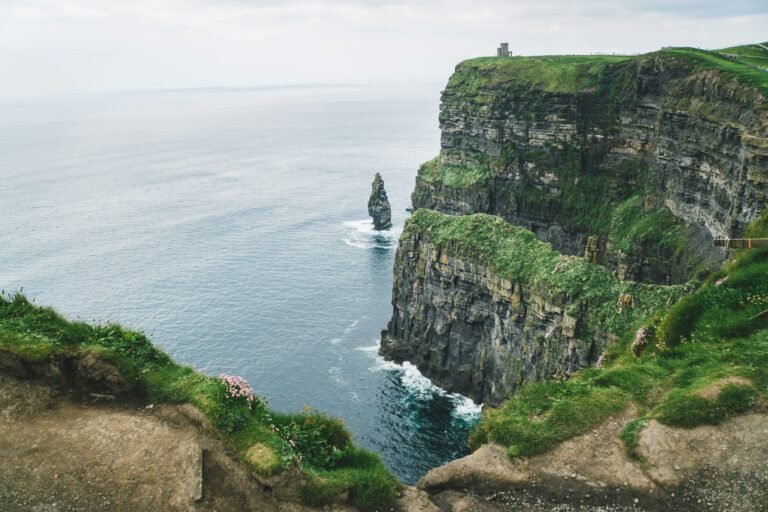The Department of Agriculture, Food and the Marine (DAFM) has shed light on the process for landowners seeking to apply for the newly introduced €5,000/ha payment for forests impacted by ash dieback. According to the DAFM’s action plan on ash dieback, there are 6,500 individual owners of ash plantations established under state-funded schemes between 1990 and 2013. These plantations encompass a total of 6,386.97ha that are still in premium for varying periods of 1-9 years, with an outstanding premium liability of €29.6 million, as per figures provided by the DAFM. Additionally, the DAFM has allocated €10 million to date for schemes addressing ash dieback, with interventions carried out on 1,700ha, as outlined in the recently published action plan.
A Climate Action Performance Payment (CAPP) of €5,000/ha is set to be disbursed to grant-aided ash forest owners who opt to clear the affected ash trees and replant through one of the DAFM’s ash dieback reconstitution schemes. This payment, in addition to grants for clearance and replanting, will be distributed in three installments. The first installment of €2,500 can be applied for after the initial grant on the ash reconstitution scheme, which is paid once the forest has been successfully replanted. The second installment of €1,250 can be sought after the second grant on the reconstitution scheme, either when the forest owner is out of premiums or at the conclusion of their premium period if they are still receiving payments. The final installment of €1,250 can be applied for the following year.
Landowners who participated in specific DAFM schemes and have replanted are eligible for the CAPP. These schemes include the Reconstitution Scheme Ash Dieback 2013, Reconstitution and Underplanting Scheme (Ash Dieback) 2020, Interim Reconstitution Scheme for Ash Dieback 2023, and Reconstitution Ash Dieback Scheme 2023-2027. Forest owners must enroll in an ash dieback reconstitution scheme by the end of 2027 to qualify for the payment. It’s important to note that ash planted as part of additional broadleaved planting in conifer plots does not meet the eligibility criteria for this payment.
An online application platform is currently in development by the DAFM for forest owners to apply for the payment once the initial grant has been received on a reconstitution scheme. The DAFM plans to initiate the €5,000/ha payments to landowners who have cleared and replanted sites before the year concludes. Moreover, the payment will be exempt from income tax, as per the DAFM’s guidelines. Landowners who have not yet applied for any reconstruction scheme for ash dieback are advised to contact a registered forester to submit an application on their behalf under the Reconstruction Ash Dieback Scheme 2023-2027.
The DAFM emphasized that all CAPP payments will adhere to de minimis rules, and forest owners applying to the scheme will be required to make a de minimis declaration. De minimis payments are exempt from EU state aid control, and applicants must disclose any de minimis payments received during the previous rolling three-year period. The total cumulative amount of de minimis payments in this period must not surpass €300,000, as outlined by the DAFM.
The CAPP elevates the total ash dieback financial package, combining existing and new elements, to €237 million. Under the new Reconstruction Ash Dieback Scheme 2023-2027, affected forest owners can benefit from a €2,000 site clearance grant and replanting grant rates tailored to the chosen forest type. The re-planting options and corresponding grant rates include native forests at €6,744/ha, broadleaf forests mainly oak/beech at €6,744/ha, diverse broadleaves at €4,314/ha, agroforestry at €8,555/ha, continuous cover forestry at €5,421/ha, mixed high forests with diverse conifer and minimum 20% broadleaves at €4,452/ha, and mixed high forests predominantly sitka spruce with minimum 20% broadleaves at €3,858/ha.
To avail of the reconstruction scheme, forest owners must engage with a registered forester who will assist in submitting the necessary application for scheme support. A felling license is not a prerequisite for this process. The reconstruction payments will be distributed in three stages, including the application for the site clearance grant, the first installment grant and top-up premium payment following the reconstitution of the treated area (75%), and the second installment grant four years after the successful reconstitution of the site (25%). Those with ash dieback affected sites still in premium will continue to receive the remaining premium due for the remaining years, as per the DAFM’s guidelines.
For recipients of farmer-rate premium, a top-up premium equivalent to the difference between the equivalent forestry type and the existing premium will be provided in a lump sum. Non-farmers will receive a €300/ha top-up. The DAFM highlighted the presence of a robust forestry contractor base equipped to handle the challenges posed by ash dieback. Furthermore, the planning permission requirement has been waived for sites under 10a that are screened-in for appropriate assessment under the reconstruction scheme, covering around 92% of ash forests. Additionally, a streamlined approval process is in place for the submission of high-quality harvesting and reforestation plans, with the removal of the previous age restriction on planting eligibility and the need for a damage assessment.
In conclusion, the DAFM clarified that it is not feasible to provide an annual payment for re-establishment within the context of the CAPP. The agency continues to work towards supporting forest owners affected by ash dieback through the implementation of various schemes and financial incentives, ensuring the preservation and rejuvenation of Ireland’s forestry landscape.





